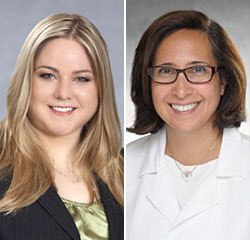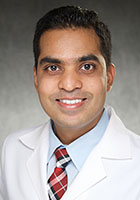What a month for seeing the fruits of strong mentorship. Once you start to look around for it, the examples are everywhere to be found. Regular readers of these posts know how deeply I value strong and effective mentoring and, more important, how fundamental I believe it is to shaping the future of our department. Last November I surveyed a number of ways that faculty can get involved at every stage of a learner’s “life cycle,” from medical school through residency and fellowship. Focused education, the kind that comes through a cultivated and individual relationship with a learner, is both our secret strength at Iowa and the most effective means to produce the high-caliber investigators, clinicians, and educators academic medicine will always need. Although that last post on “the pipeline” looked at systematic and structural ways faculty can become mentors, I am pleased this week to present individual stories of how efforts like yours are paying off.

The invited review is a mark of one’s authority on a particular topic and Dr. Diana Jalal has an established credibility on a number of renal-related issues. Since joining us she has established a robust clinical research program that aligns well with her clinical efforts, in addition to taking a leadership role within the VA Medical Center as deputy chief of subspecialty medicine there. After a presentation at a professional society meeting, she and two others were invited to submit a review of the topic to the Journal of the American Society of Nephrology. At about the same time, one of our fellows in pulmonary, Dr. Elizabeth Batchelor, was looking to get some more exposure in the subspecialty. The two connected and the resulting collaboration, it seems, was a successful one. I will let their quotes in the linked article tell the tale, but I think what this also reveals is our culture of individualized education. We are committed to letting trainees shape their path as much as we can. Unmentioned in this story is how Dr. Jeff Wilson, pulmonary and critical care fellowship director, structured his program in a way that allowed Dr. Batchelor the freedom to explore this interest.

Successful mentoring is finding that balance between what the trainee needs and wants. Mentors apply their own experience and training as they consider formal and informal instruction and interaction, what has worked for them and maybe even what they might have missed out on themselves. Younger faculty members might have more incisive lessons to impart to a trainee because of the recency of their own training days. One can see in this profile of the recent activity of oncologist Dr. Rohan Garje that he is making time within his clinical responsibilities to bring fellows along on his research and publications. Dr. Garje is a 2017 graduate of our oncology fellowship program and his is the first of a few profiles we will be presenting in the coming months of faculty working within the Holden Comprehensive Cancer Center.

I am certain that Dr. Garje’s mentors feel a special satisfaction in watching him emerge into independence and pass on what they have taught him. I speak from experience when I see the success that Dr. A. J. Hinton, Jr., is having as a mentor. A member of my own lab, Dr. Hinton has taken responsibility for a number of undergraduate and graduate students’ education. One of his mentees, Benjamin Kirk, was recently recognized with an Excellence in Undergraduate Research Award from the Iowa Center for Research by Undergraduates, a terrific campus organization that connects students interested in research careers with willing labs and mentors. Mr. Kirk is not the first of Dr. Hinton’s students to rise to greatness and it is his consistent good work with them that has earned him this year’s Excellence in Mentoring Award, a well-deserved recognition from IINSPIRE LSAMP, an organization committed to increasing underrepresented minority student participation in the sciences. Dr. Hinton’s passion for mentorship is unparalleled and his students are fortunate to work with him.
 It must bear mentioning that careers devoted to mentorship have immeasurable impact and the mind cannot comprehend just how many careers in academic medicine have been transformed because of the work of Dr. Donald Heistad. The entire department and college looks forward to celebrating with him and his family this fall when he receives the Daryl and Nancy Granner Distinguished Mentor Award. There are few other teaching awards that measure the success of the impact of an individual’s mentorship across a long and distinguished career by the outcomes of their trainees as this recognition. Every one of Dr. Heistad’s recommenders did not hesitate when asked to give him enormous credit for his help in shaping their careers. Congratulations and thank you, Don, for the example you have set for us all.
It must bear mentioning that careers devoted to mentorship have immeasurable impact and the mind cannot comprehend just how many careers in academic medicine have been transformed because of the work of Dr. Donald Heistad. The entire department and college looks forward to celebrating with him and his family this fall when he receives the Daryl and Nancy Granner Distinguished Mentor Award. There are few other teaching awards that measure the success of the impact of an individual’s mentorship across a long and distinguished career by the outcomes of their trainees as this recognition. Every one of Dr. Heistad’s recommenders did not hesitate when asked to give him enormous credit for his help in shaping their careers. Congratulations and thank you, Don, for the example you have set for us all.